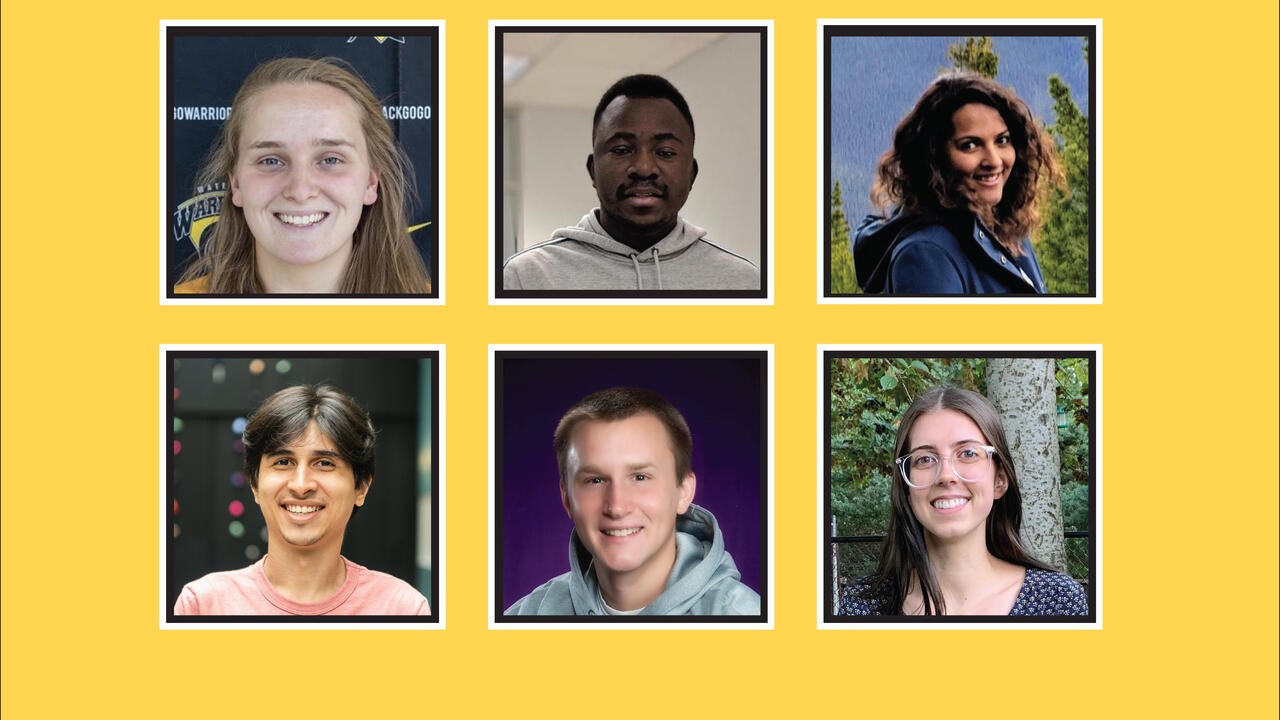
Waterloo celebrates Class of 2020 master’s students
Spotlighting the accomplishments of six exceptional students

Spotlighting the accomplishments of six exceptional students
By Staff University Relations
For graduating master’s students, convocation is an important recognition of their hard work and dedication. Some will move on to professional roles, while others plan to continue the research that has captured their imagination.
As they celebrate their accomplishments with their families and supporters, Waterloo recognizes the commitment and success of our master’s students, including these six graduands.
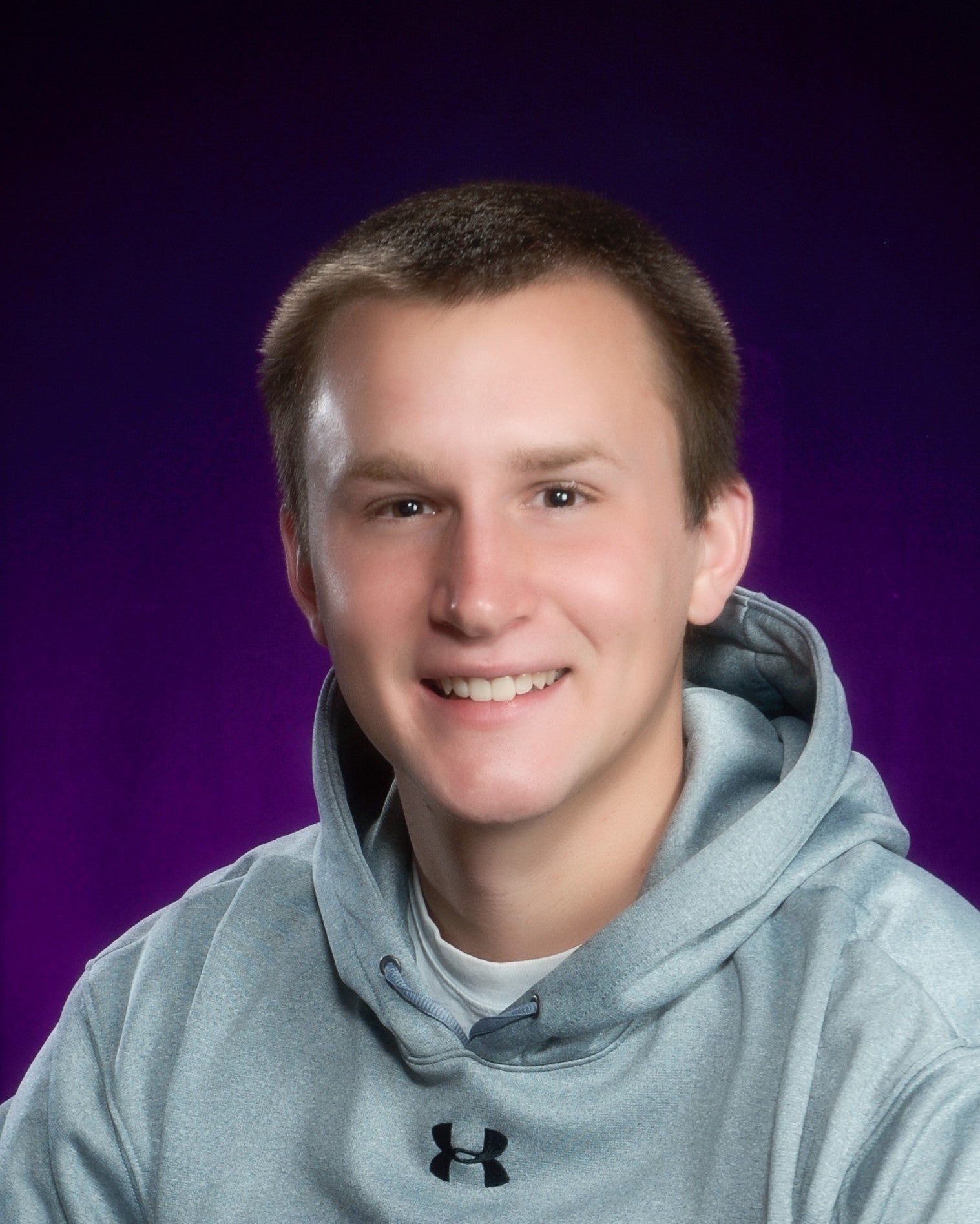
Eric Hedge
Eric Hedge was first connected to the University of Waterloo almost by chance. He was an undergraduate student working in a lab at the University of Western Ontario when his then-supervisor encouraged him to attend an on-campus event featuring Kinesiology professor Richard Hughson, who is based at the Research Institute for Aging.
Inspired by the work happening in Hughson’s lab, and his own interests in cardiovascular and respiratory physiology, Hedge reached out and joined the Faculty of Applied Health Sciences to pursue his Master of Science in Kinesiology. Working in Hughson’s Vascular Aging and Brain Health Lab, he focused on using sensors integrated into a smart shirt to try to predict a person’s metabolic response to exercise. Essentially, he says, the goal was to develop a smart monitoring system to assess physical fitness as an indicator of human health in a non-intrusive way.
“One of the things that’s nice about wearable sensors is that people have them on their person all the time in some form or another,” he explains. “What we were trying to do is take this information that’s easy to obtain — but is really complex and there’s a lot of data — and figure out a way to analyze it to get an outcome that is easy to understand.”
His research efforts did not go unnoticed. Hedge was awarded the Alumni Gold Medal, an award presented annually to one master’s student in recognition of their academic excellence. And he’ll be continuing his research at Waterloo as a PhD student in Kinesiology, supervised by Hughson and supported by a Doctoral Research Award from the Canadian Institutes of Health Research.
His parents, he says, have been huge supporters of his journey so far. But Hedge also credits his colleagues with helping him along the way. He’s ready to get back into the lab to enjoy the camaraderie that comes with it.
“I want to recognize my supervisor and all of my lab mates, because without them what I was able to accomplish in my time, so far, at Waterloo wouldn’t have been possible.”

Cassandra Hayward
Cassandra Hayward was drawn to the Master of Arts Global Governance program based at the Balsillie School of International Affairs because of its experiential component. The chance to supplement her studies with an internship combined with Waterloo’s scholarship opportunities was an easy choice.
“I’m not much of a theoretical learner. I’m more hands-on, ready to get in there, so I saw that and was pretty excited,” she remembers. “It was kind of the perfect fit. It really checked all of the boxes I was looking for.”
Supervised by professor Marie-Claire Cordonier Segger, Hayward’s research was a deep dive into Canada’s progress on the United Nation’s second Sustainable Development Goal (SDG), Zero Hunger. It’s a topic that she feels passionately about, having experienced food insecurity in her own life, and she’s determined to understand what it looks like in Canada and why it’s happening.
Her work in food security and agricultural development has brought Hayward to the United Nations six times over the last three years. She’s attended both the Committee on Global Food Security and various agency events including the Food and Agricultural Organization’s Biannual Conference in Rome, Italy. In December 2019, she travelled to the UN Framework Convention on Climate Change’s Conference of the Parties in Madrid, Spain with her supervisor and a few student colleagues. Hayward also spent two years volunteering as a member of Food Secure Canada’s Youth Caucus’s executive Committee and is currently doing work with the Centre for International Sustainable Development Law.
Life in Waterloo wasn’t all work for Hayward. With one year of eligibility remaining, she joined the Warriors varsity rugby team for the 2019-2020 season. She had to leave her home province of Nova Scotia to attend Waterloo and she credits the team for helping her build a new community on campus.
The pandemic brought her back home to a full-time role with Innovation Science and Economic Development Canada working in food processing and ocean sustainability. She’s planning on a PhD, but for now, she’s celebrating this big accomplishment in an unusual time.
“I don’t think I could have asked for anything better, coming out of a degree and getting a full-time job of it during a pandemic,” reflects Hayward. “That might be the most successful thing I’ve ever done in my life!”
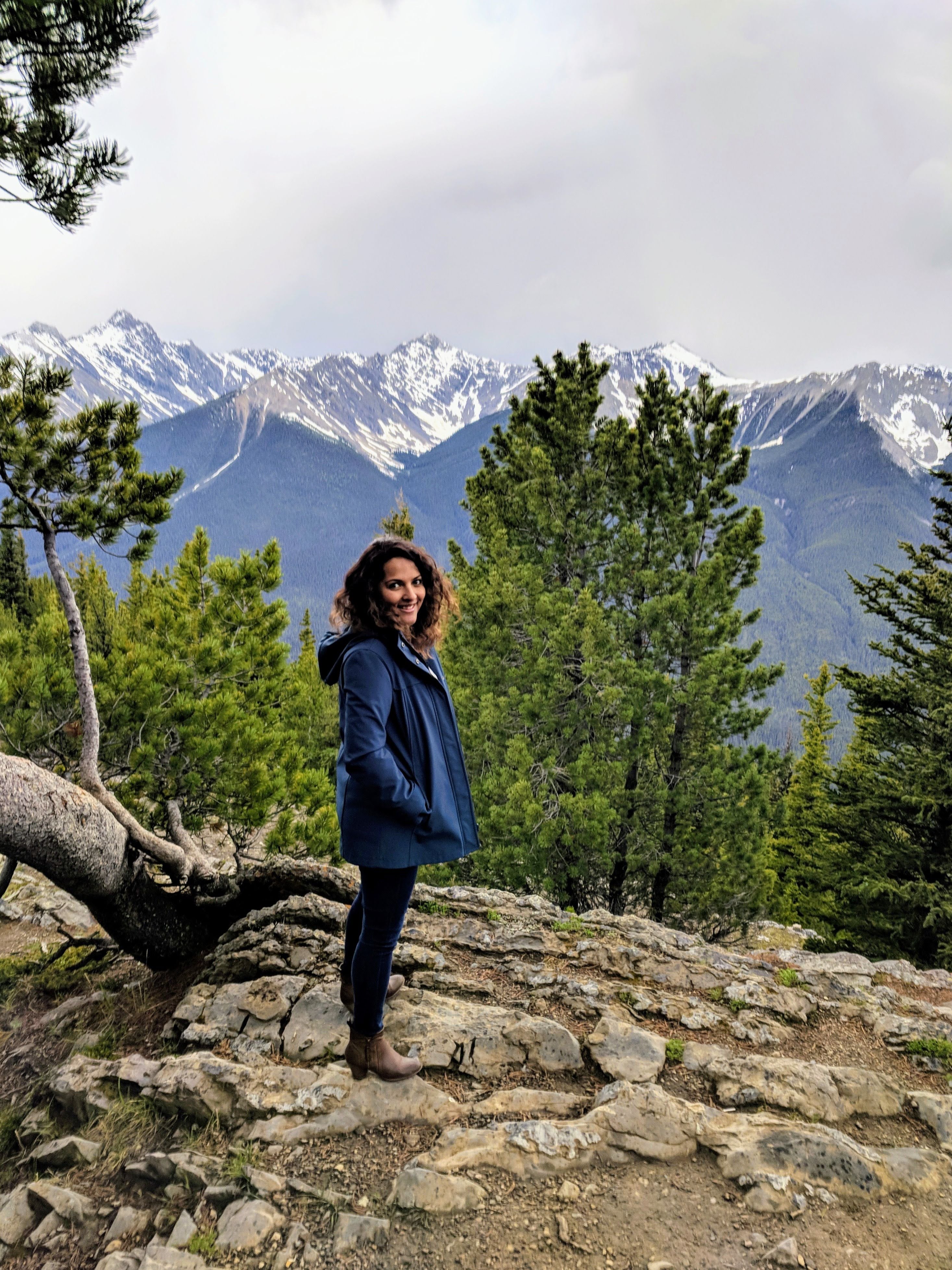
Minelli Clements
When Minelli Clements decided to leave her job in telecommunications to pursue a graduate degree, she was looking for a program that would empower her to create things. And she found it in the Master of Business, Entrepreneurship and Technology (MBET) at Waterloo.
“I wanted something innovative. I need to dig deep into problems and get my hands dirty building solutions,” she explains. “That's just how I've always been my entire career, and MBET was the perfect place to grow something.”
Clements started the program with an idea based on her love of data, but quickly realized it wasn’t viable. That’s when the lightbulb went off — the Alberta-native knew she was passionate about the outdoors and conservation, and a life-changing trip exploring Iceland had spotlighted the importance of preservation and green technologies. She wanted to spend her life improving the environment using technology.
After reaching out to a network of friends and family in the conservation and telecommunications, Clements identified a problem. The environmental sensors driving research weren’t connected, meaning there were only two ways to get the data. Researchers were trekking through remote terrains to get it themselves, or it had to be transmitted by outdated methods like satellite. She started her company LorCan and began developing a connectivity solution for remote area data transmission.
“These remote areas need protecting, they need the same amount of respect that we give in urban centers, we need to monitor those things for future generations and sustainable growth. That message is so vitally important right now in this world.”
Clements’ team, which includes fellow MBET grads Alison Purdon and Krishna Vegiraju, are developing a device that will connect to existing sensors to relay data through a mesh network. Their business is quickly gaining traction. LorCan was the only Canadian university team to compete at the prestigious Rice Business Plan Competition. Now they’re pitching, fundraising and getting the business ready to move to the next level.
She credits the program with giving her the tools she needed to succeed, from business model validation to marketing to providing the tools needed to be a resilient entrepreneur. And Clements is especially grateful to her classmates and the supportive community that the Conrad School of Entrepreneurship and Business has created.
“There was not one person in my class whose feedback I didn’t value. Everyone comes in with such a unique approach to problems, using their own experience” she says. “That's why this experience was amazing!"
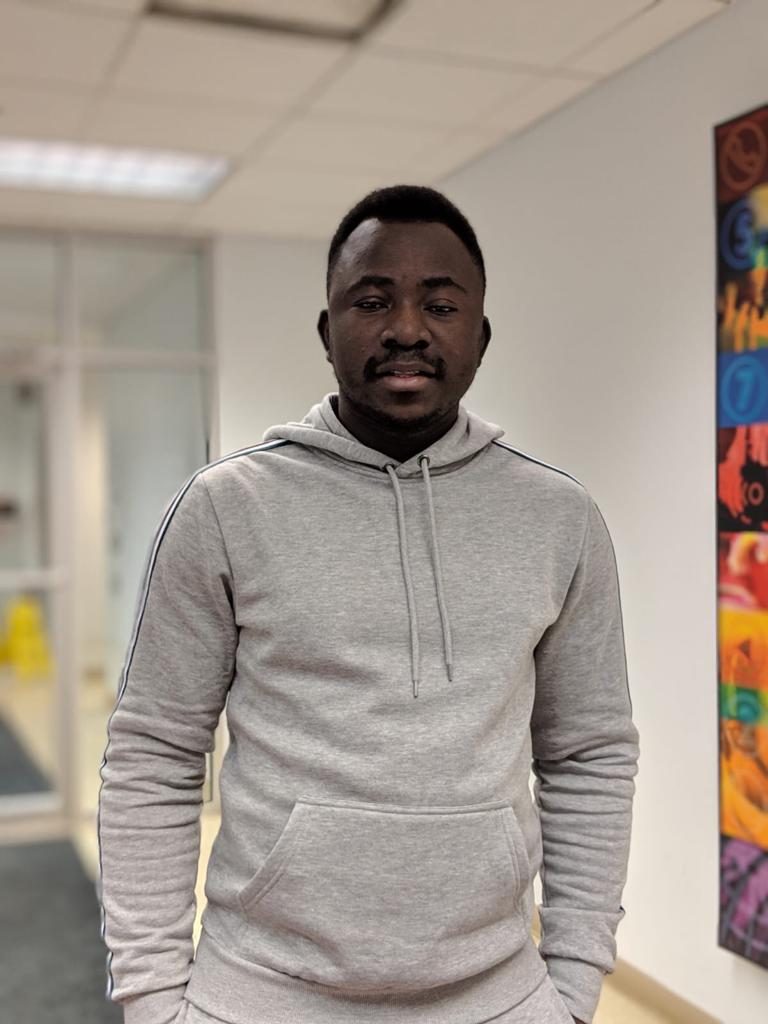
Odunayo Onifade
Odunayo Onifade has always been fascinated by maps. It fuelled his curiosity as he learned to extract information with location intelligence studies and tools to explore the influence of the environment on our well-being. Drawn to Waterloo’s academic reputation and future career opportunities, he chose to pursue a Master of Science in Geography and Environmental Management in the Faculty of Environment.
His research was inspired by his background in urban planning. Under the supervision of Jane Law, Onifade explored the relationship between street crime and greenspace in the City of Toronto, controlling for sociodemographic indicators.
Onifade found that street crime was lower in areas with more greenspace. He recommended that policymakers encourage tree-planting programs by providing incentives to the neighbourhoods with lower greenspace to achieve greenspace equity. He also highlighted six sociodemographic indicators (median household income, unemployment rate, lone parent, high school degree holders and housing units occupied by owners and renters) significantly associated with rates of assault, auto-theft and robberies.
Graduating is not only a professional accomplishment, but also a personal one. His degree was almost derailed by a personal tragedy. Eight months into his program, Onifade lost his mother and decided to take some time off. It was a challenge to his motivation, he says, but with the support of his friends, family and his community at Waterloo, he persevered.
His degree now complete, Onifade is ready to take on more. He’s currently taking courses in location intelligence, machine learning and cloud computing, while also exploring for the right opportunities to help solve real-world problems.
“Learning never stops,” he says.
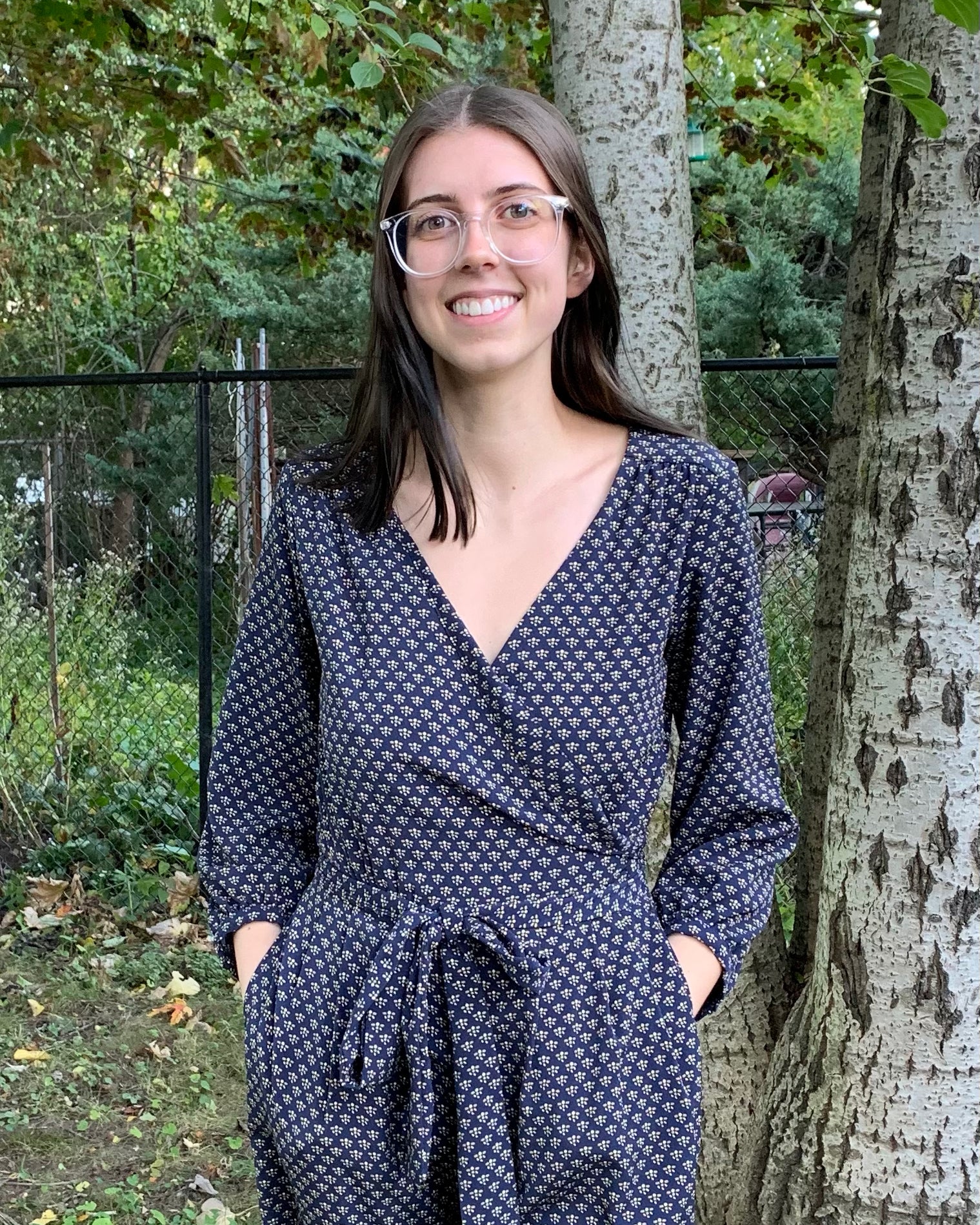
Grace Tompkins
When Grace Tompkins attended Waterloo’s Grad Visit Day in 2019, she was presented with an opportunity to combine her interests in public health with her research in mathematics. The Master of Mathematics in Biostatistics program was the perfect blend of mathematical theory and epidemiology that she was looking for.
Supervised by professor Michael Wallace, Tompkins’ research focuses on the idea of simplifying processes for patient decision making in health care. She recognized that interpreting medical statistics, understanding uncertainty, and making decisions based on this information is difficult and overwhelming for many. So, she explored methods in decision making that allowed for the retrieval of less quantitative information from patients and found that under many conditions, these methods were beneficial.
“Literacy, particularly in statistics and medicine, should not be a barrier to receive the best possible health care,” explains Tompkins. “Making a decision that can impact one’s livelihood is extremely difficult and can cause a great amount of stress. I think having computer-based programs that could guide a decision using statistics that we can find in medical literature would benefit individual health.”
She’s continuing with her studies at Waterloo, pursuing a PhD in Biostatistics. But Tompkins is also taking a moment to celebrate her accomplishments. As a first-generation university student, she’s proud of completing her master’s degree — even if the pandemic meant she was unexpectedly submitting her research paper from the kitchen table of her childhood home. But maybe it was a fitting end, since she credits her family with helping her get this far.
“I want to thank my parents, Robert and Sheila, for the unconditional love and support. My parents are my number one fans and have sacrificed a lot for my sister Emma and I to be able to have a post-secondary education and follow our passions. I wish that I could celebrate with the three of them on my Convocation day, but I know they are very proud of me and we will find a way to connect virtually.”
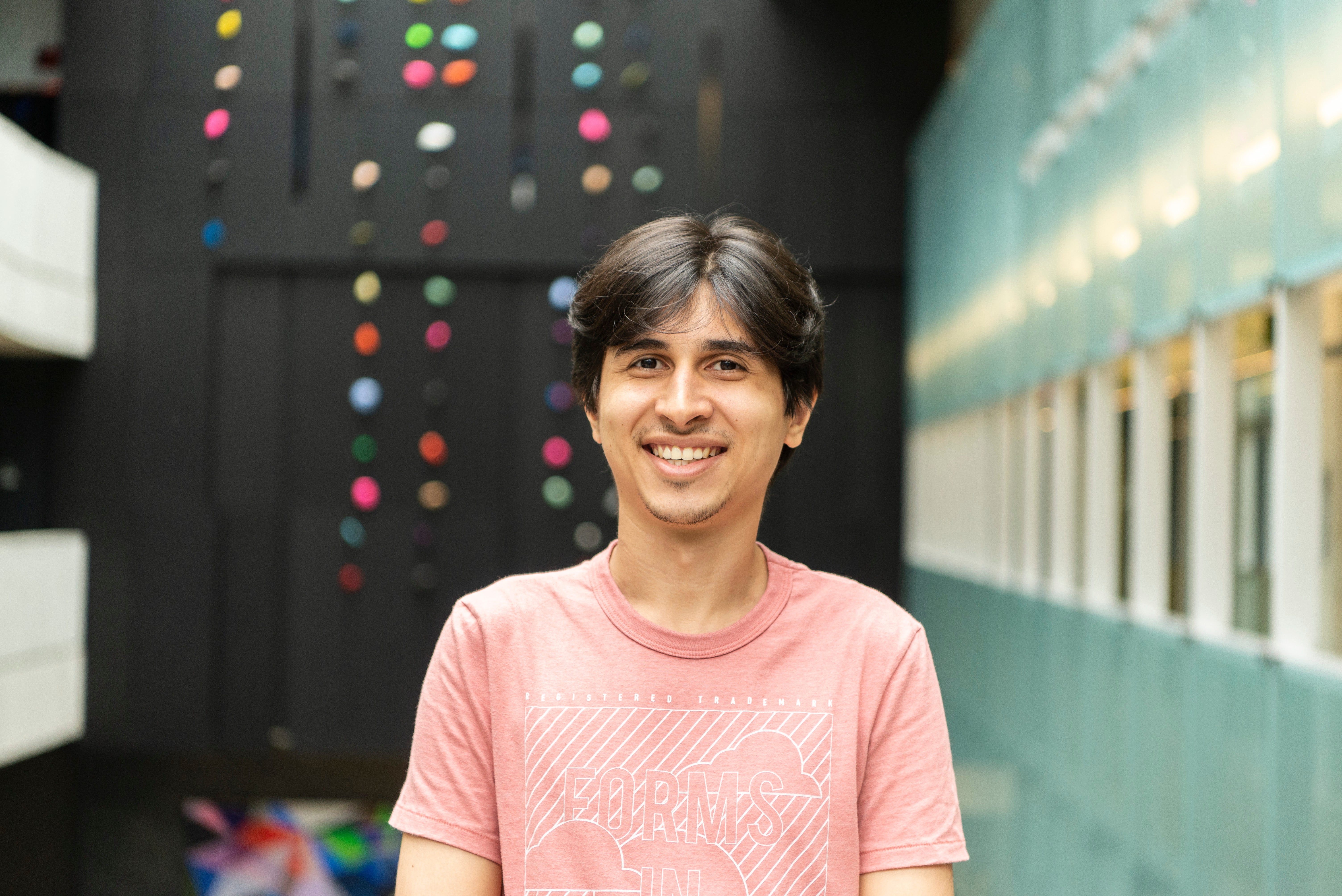
Bruno de Souza Leão Torres
When Bruno de Souza Leão Torres completed his undergraduate degree at the Universidade Federal de Pernambuco in Recife, Brazil he knew his education in theoretical physics had just begun. He earned a spot in the highly competitive Perimeter Scholars International program, through a joint program with the Institute for Theoretical Physics at São Paulo State University and moved to Waterloo with his wife in the Fall of 2019.
Drawn to the Perimeter Institute by its reputation and “how many great minds it attracts”, his work focused on relativistic quantum information, and the interplay between gravity and quantum mechanics. Under the supervision of Eduardo Martin-Martinez, Torres explored the notion of particle detector models, and worked towards developing a general formulism for particle detectors for quantum fields in curved space time.
Physics, for him, is about more than just science.
“I think it's very inspiring. That may be a very romantic way to put it, but for me, at least, it's part of what makes life worth living,” he explains. “These sorts of questions that are related to what the universe is made of and what can we tell about nature and the structure that we live in. It’s been the biggest motivation for me to do what I do.”
Now that his Master of Science in Physics is complete, he’ll be continuing his work as a resident PhD student at the Perimeter Institute under professors Martin-Martinez and Beni Yoshida. His passion for his research is apparent, but Torres says that no matter what the topic is, that level of commitment is a necessary ingredient for success.
“If you're going to grad school, it has to be because you're motivated with your life for the thing you're going through, because it's going to be hard, it’s going to be tough, you’re going to dedicate a lot of time to it and it’s not going to pay off if you don’t feel like you’re passionate about what you’re doing,” he explains. “But also think about it as more than just an academic endeavour. Believe that the things that you’re going to learn are going to make you a better human being.”

Read more
Meet the six class speakers that have inspired our graduating students

Read more
Celebrating the accomplishments of Mansour Esnaashary Esfahani, Mari Foroutan and Jaya Gupta

Read more
Meet the 14 exceptional students representing Waterloo’s newest grads
The University of Waterloo acknowledges that much of our work takes place on the traditional territory of the Neutral, Anishinaabeg, and Haudenosaunee peoples. Our main campus is situated on the Haldimand Tract, the land granted to the Six Nations that includes six miles on each side of the Grand River. Our active work toward reconciliation takes place across our campuses through research, learning, teaching, and community building, and is co-ordinated within the Office of Indigenous Relations.